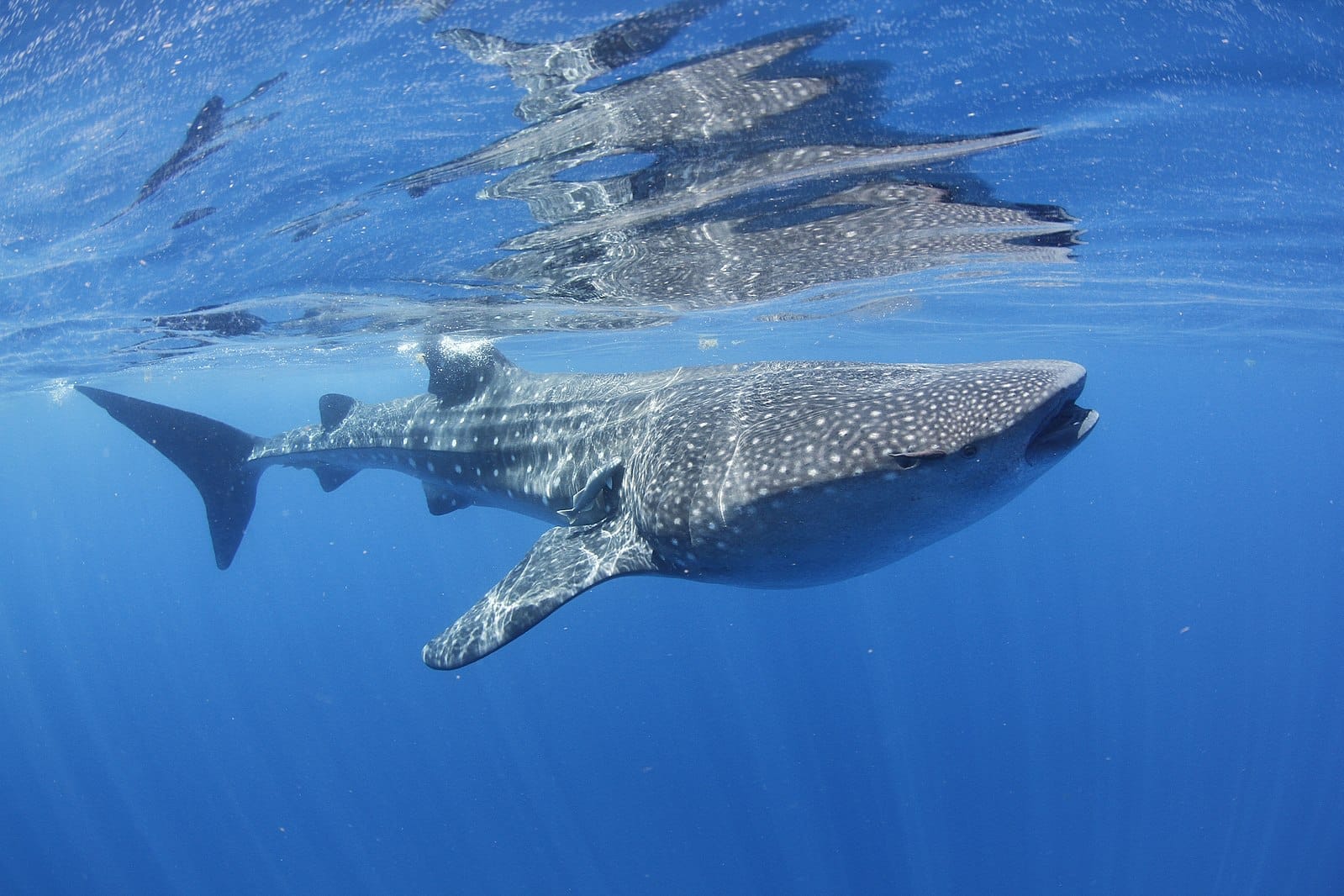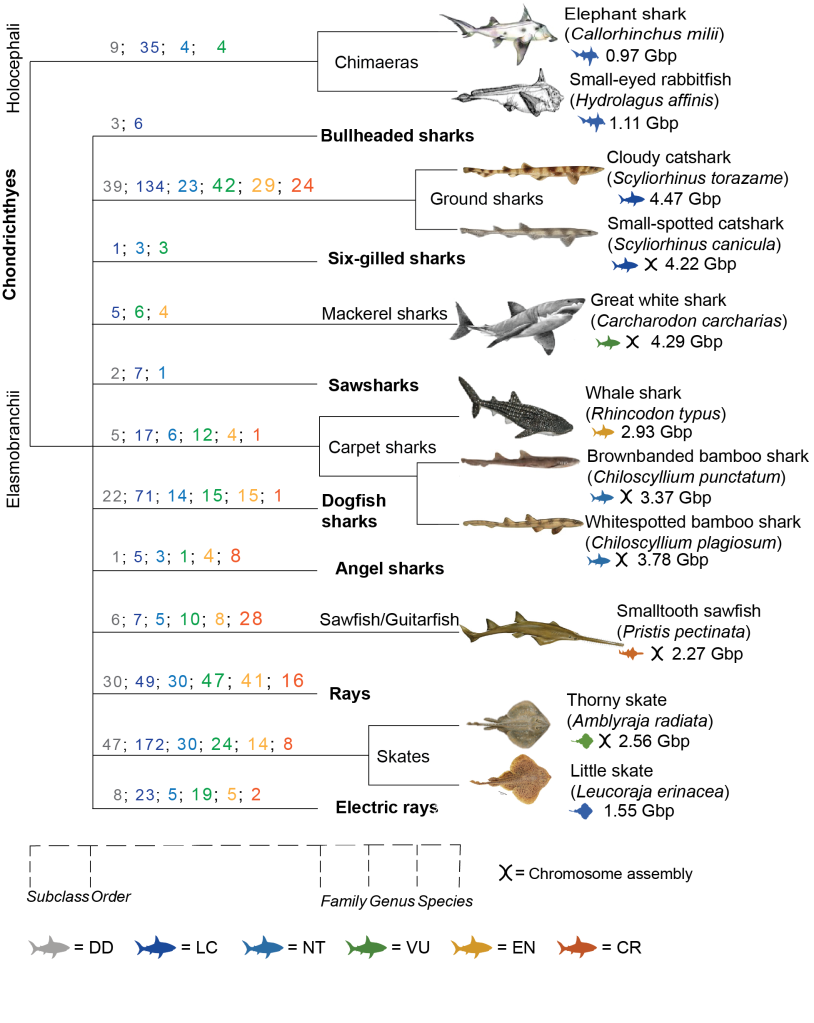New paper alert: how DNA can help save threatened sharks

We are excited to announce that the new review paper "State of shark and ray genomics in an era of extinction" led by our Masters student Jessica Pearce, has just been published in Frontiers in Marine Science! This review discusses how genomics can assist in the conservation of highly threatened species, such as cartilaginous fish (shark, rays, skates and chimaeras). This work is the result of a collaboration between UWA and DNA Zoo involving Dr Matthew Fraser , Dr Ana Sequeira and Assoc Prof Parwinder Kaur. We identified the gaps and priorities in developing genomic resources for these species, and demonstrated how the lack of genomic resources is limiting their conservation.
Despite being greatly threatened and of great importance in maintaining ecosystem function, cartilaginous fish have been repeatedly absent from conservation-based genome sequencing projects. We found less than 1% of these species have a genome sequence, despite almost 50% of either threatened or Data Deficient conservation status. Most notably, there are seven orders within this class without any genome representation.

Critical steps to advance this field will include establishing baseline reference genomes for every order within the cartilaginous fish class, followed by reference genomes specifically for Critically Endangered species, such as angel sharks or sawfish and guitarfish, which have the highest proportion. Developing sample collection and storage suitable for genetic studies as standard practise, and increasing accessibility of user-friendly bioinformatics software will increase utility across biological sciences. This will help to target efforts to increase relevance for conservation management, which in turn should lead to better informed policy decisions.
Congratulations to Jessica on a great first paper as a fantastic outcome for her Masters thesis!
